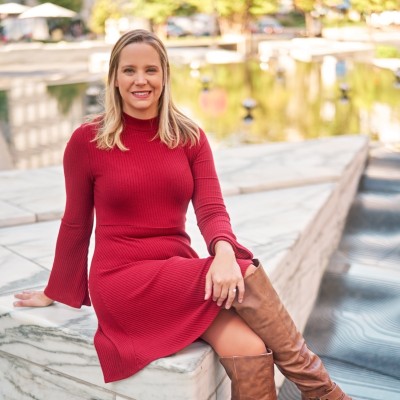In a shifting real estate market, the guidance and expertise that Inman imparts is never more valuable. Whether at our events, or with our daily news coverage and how-to journalism, we’re here to help you build your business, adopt the right tools — and make money. Join us in person in Las Vegas at Connect, and utilize your Select subscription for all the information you need to make the right decisions. When the waters get choppy, trust Inman to help you navigate.
Although the real estate market has slowed, time is still of the essence for the millions of homebuyers and homesellers attempting to secure their next abodes before interest rates, inflation or another market factor upends their plans.
This frenzy has pushed the industry to streamline the communication process, with real estate’s biggest brands breaking the bank on swanky end-to-end platforms with sharp messaging systems and tech companies, such as Zoom cashing in on the attention.
Despite all of that, agents told Inman there’s still one, simple avenue that remains king: email.
Andrea Geller
“Email is the most streamlined communication that everyone uses and we are in an industry we need to document our conversations,” Berkshire Hathaway HomeServices Chicago broker Andrea Geller said. “There are too many other means of conversation. It’s not our job to pick one of those and make our clients conform to the one we pick.”
As social media or another lead generation platform, such as Zillow or Realtor.com often remain the first point of contact for many agents, Geller and others said securing an email address is crucial to effectively integrating a client into your workflow and reducing the chance you’ll miss an important message.

Nicole Beauchamp
“I still love email as a generally easier trail,” Engel & Völkers Americas broker Nicole Beauchamp explained. “Some of the other platforms are harder to search and archive, and sometimes there are just too many possible inputs — it can be very frustrating trying to track down which platform a conversation took place in.”
Even though emails are ultimately an agent favorite, Nexthome Connect Realty agent Annett T. Block noted there’s a science to effectively using them. For Block, emails aren’t the best way to build rapport with potential clients, who need to get a better feel for your personality through social media interactions, phone calls or even a video chat via Zoom.
“In the prospecting phase, I use video as a communication tool to stay in front of the prospect as I have most of the time no other way to communicate with them,” she said. “Communication starts if they comment on social media where I will comment back and then communicate via messenger to move them into the next phase.”

Annett T. Block
She added, “During the next phase I have some kind of contact information that could include email, messenger, phone that allows me to text, etc. But during the transaction stage, I use email very heavily to have a track record required in real estate.”
If you’d rather eat dirt than spend all day crafting emails, DC-based eXp Realty broker J. D’Ann Melnick and L&K Real Estate agent Michael Pitcairn said creating templates is an easy way to reduce your writing time and stay on track. Pitcairn also suggests utilizing email labels and filter rules to keep track of specific leads, listings or clients.
“My email is a bit of a warzone,” Pitcairn said with a laugh. “But do I have an email contact list for my top clients, and I go the extra mile to print it out and attach it to my external monitor, so I’m staring at it every day. It helps me to remember to reach out to and email about nitty-gritty details on either contracts or offers or status updates.”

J. D’Ann Melnick
“For process and timeline stuff, I generally stick to email so things can be in writing and they can reference back. I let them know the reasoning for this and confirm they are okay with that,” Melnick added. “I have templates set up to accomplish those milestone emails.”
Despite it being the least one of the least exciting modes of communication, Geller said email is what often saves agents’ butts if something goes wrong in a transaction and they need to retrace their steps.
“The other issue is with more and more emails getting compromised, some brokerages’ errors and omissions insurance will only cover the agents when they use the email provided by the brokerage,” she warned. “If an issue arises and you are using a third-party like Slack or Facebook Messenger you are out of luck with your E & O covering you.”
Although each agent agreed email should be the cornerstone of your communication plan, they also said flexibility is key to reaching your client where they are. If one client is more of a texter than a talker, Beauchamp, Melnick and Block said it’s easier to adjust your method than goad them into doing what you want.
“Honestly I think the best way to communicate with clients is to meet them where they are. This is part of my initial process and consultation — I just ask them,” Melnick said.
Block added, “Buyer and sellers are in different phases throughout the buying and selling process. In real estate, we have the phase of prospecting, nurture, transaction and staying in touch. In all phases in my opinion we communicate one way or the other — I focus on technology and meet the person where they are at throughout all processes.”
Within that, Beauchamp said it’s crucial to set boundaries and make sure accessibility doesn’t turn into an abuse of availability, where clients are calling, texting or emailing at all times of the day or night.

Michael Pitcairn
“It’s very important to communicate with clients in the method they prefer, as to what type of communications are best suited to which platforms,” she said. “And during this conversation, we also try to tackle times of day or signals for when we need to schedule a call.”
After the transaction is over, Pitcairn said he relaxes on emails and switches to more informal or personal ways of staying in touch with clients.
“My biggest point is just picking up the phone and talking to people especially once you get done with a transaction,” he said. “I’m guilty of it as well. You don’t follow up with your clients that you’ve closed, and it’s important to pick up the phone and express your appreciation.”
Lastly, if all else fails, Oregon-based agent Nick Leech said agents can aim to get at least one thing: “Call, text, email and hope to still get drinks.”
Email Marian McPherson



 Are You Interested in West Eleventh Residences Miami?
Are You Interested in West Eleventh Residences Miami? Are You Interested in ONE Park Tower by Turnberry?
Are You Interested in ONE Park Tower by Turnberry? Are You Interested in Diesel Wynwood Condominium?
Are You Interested in Diesel Wynwood Condominium? Are You Interested in Five Park Miami Beach?
Are You Interested in Five Park Miami Beach? Are You Interested in Cipriani Residences Miami?
Are You Interested in Cipriani Residences Miami? Are You Interested in Bentley Residences Miami?
Are You Interested in Bentley Residences Miami? Are You Interested in Baccarat Residences Brickell?
Are You Interested in Baccarat Residences Brickell? Are You Interested in Aria Reserve Miami?
Are You Interested in Aria Reserve Miami? Are You Interested in 888 Brickell Dolce & Gabbana | Miami?
Are You Interested in 888 Brickell Dolce & Gabbana | Miami? Are You Interested in 600 Miami WorldCenter?
Are You Interested in 600 Miami WorldCenter? Are You Interested in HUB MIAMI RESIDENCES?
Are You Interested in HUB MIAMI RESIDENCES? Are You Interested in WALDORF ASTORIA RESIDENCES?
Are You Interested in WALDORF ASTORIA RESIDENCES?